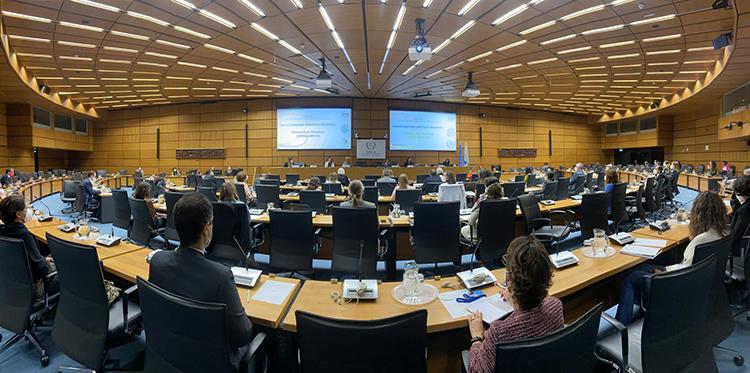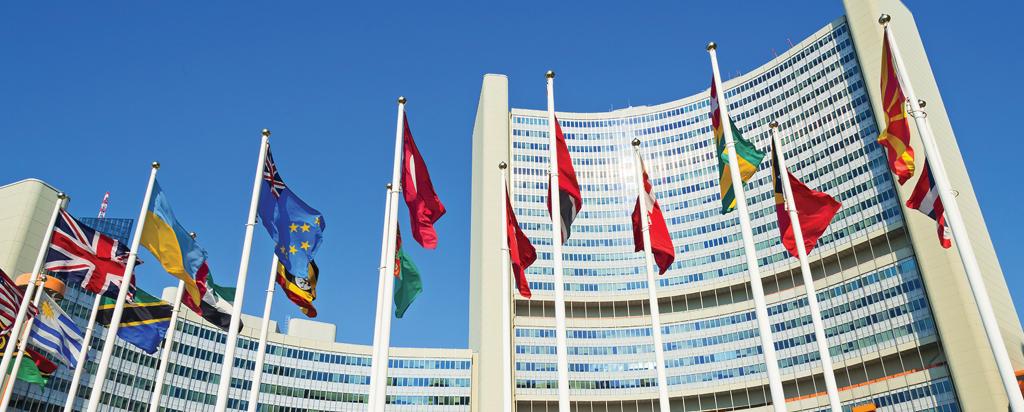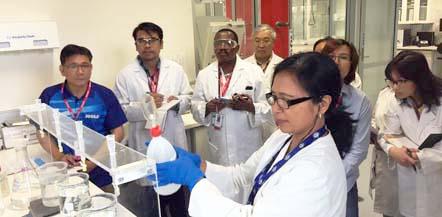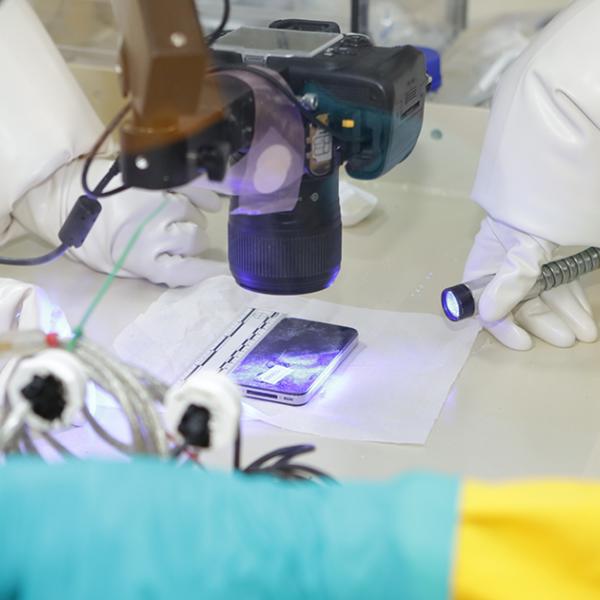

Published on the 15th October 2021 by ANSTO Staff
Although Australia does not use nuclear energy for power needs, it does have the nuclear capabilities, knowledge, and expertise provided by ANSTO to ensure the national interest in nuclear matters is protected and advanced.
ANSTO’s capabilities and expertise are based on the operation of the advanced multipurpose reactor, OPAL, and other landmark national infrastructure, as well as on the production of nuclear medicine for Australia and a diverse research portfolio to benefit health, the environment, and industry.
ANSTO has a mandated role under the ANSTO Act to advise the Australian Government on nuclear science and technology and to engage on these matters internationally.
It is perhaps not well known that ANSTO directly supports Australia’s interests globally by collaborating closely with the International Atomic Energy Agency (IAEA), a world centre for cooperation on nuclear matters and the preeminent international organisation on the safe, secure, and peaceful uses of nuclear technologies.
Holding a permanent position on the 35-member IAEA Board of Governors, Australia has a strong voice on important international nuclear issues, including safeguards verification in places such as Iran and the safety of nuclear facilities.

Australia holds this position as the most advanced country in nuclear science and technology in South East Asia and the Pacific region.
ANSTO demonstrates these credentials through its active contribution to the IAEA’s technical work.
The IAEA is known as the “international nuclear watchdog” for its safeguards and safety activities.
Using the ultra-sensitive facilities of the Centre for Accelerator Science, ANSTO supports the IAEA Network of Analytical Laboratories in analysing samples from around the world to ensure compliance with IAEA safeguards requirements.
It is perhaps less well known that one of the IAEA’s most important programs is devoted to socio-economic development using peaceful nuclear technologies.
Closely aligned with the United Nations’ Sustainable Development Goals, the IAEA has a Technical Cooperation (TC) Programme in which Member States, such as Australia, share expertise in nuclear science and technology.
ANSTO contributes directly to the Technical Cooperation Programme, which includes developing capacity in the production of nuclear medicine for the diagnosis and treatment of disease, using nuclear techniques in the study of water resources to improve environmental sustainability and public health outcomes, and to breed more durable and higher yielding crops.
On behalf of Australia, ANSTO leads national participation in the Regional Cooperative Agreement (RCA), the main forum for Technical Cooperation in the Indo-Pacific region.TheInternational Affairs Manager at ANSTO, Mark Alexander, acts as a National Representative for IAEA RCA activities.

An IAEA training course on radionuclides held at ANSTO for regional participants
ANSTO, a member of other key IAEA programs, was recognised this year as a Collaborating Centre on Environmental applications. It joined a select group of organisations around the world identified by the IAEA for distinctive capabilities in specific areas.
ANSTO staff are valued as subject matter experts and share their expertise at meetings, conferences, on missions, and through membership on various IAEA committees, advisory and working groups, and technical bodies.
Head of Research at ANSTO, Dr Suzanne Hollins, is the Chair of the Standing Advisory Group on Nuclear Applications, an expert group of scientists that advises the IAEA Director General on the direction, trends, and priorities for non-power uses of nuclear science and technology.
Other ANSTO experts have contributory roles in the IAEA. Chief Engineer Con Lyras has been chairing the International Decommissioning Network, a group that promotes knowledge-sharing on the management of shutdown nuclear facilities, for the past nine years. He was recently made a member of the IAEA Technical Working Group on Decommissioning and Environmental Remediation.
Jennifer Harrison, Leader of Nuclear Stewardship, is the Regional Coordinator for the Analytical Laboratories for the Measurement of Environmental Radioactivity (ALMERA) network, a global group of laboratories that provide timely and reliable measurements of isotopes in the environment.
Recently retired Senior Manager for Government and International Affairs, Steven McIntosh, has and continues to make a sustained contribution through the IAEA over many years in numerous roles. Appointed by the Director General, he continues to serve as the Chair of the International Expert Group on Nuclear Liability, the pre-eminent global group of nuclear law experts responsible for modernising the world’s nuclear liability framework.
“Through this extensive engagement, ANSTO shows it is a global leader at the IAEA and in nuclear science and technology in the region,” said Alexander.
